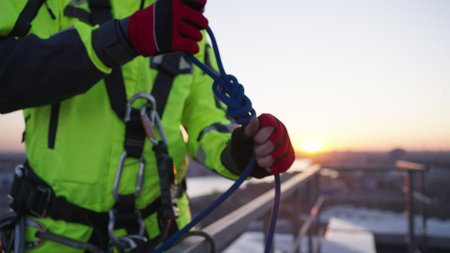Overview of Technology Use in the UK Outdoors
In recent years, the use of technology has become increasingly integral to both recreational and professional activities across the UK’s diverse landscapes. Whether exploring the rolling hills of the Lake District, navigating Scotland’s remote Highlands, or venturing through bustling urban centres like London and Manchester, individuals are now routinely equipped with a range of electronic devices. Contemporary attitudes reflect a pragmatic balance between embracing technological advancements—such as smartphones, GPS units, and emergency location beacons—and adhering to traditional outdoor skills and local best practices.
Within the UK outdoor community, carrying technology is widely accepted as a sensible precaution rather than an indulgence. Mobile phones are seen as essential for both navigation and communication; GPS devices provide reliable location tracking in areas where phone signal may falter; and emergency devices such as personal locator beacons (PLBs) or satellite messengers are increasingly recommended for remote expeditions. However, there remains a strong cultural emphasis on preparedness: British walkers, climbers, and urban explorers are encouraged not to become overly reliant on technology at the expense of map-reading, route planning, and situational awareness.
The prevailing best practice is to integrate modern technology into one’s kit while recognising its limitations—battery life, signal coverage, and potential device failure all demand contingency planning. This attitude reflects a broader ethos of self-reliance and respect for the unpredictable nature of Britain’s weather and terrain. As such, responsible adventurers in the UK view technology as an invaluable tool that complements, rather than replaces, fundamental outdoor skills.
2. Mobile Phones: Signal, Carriers, and Etiquette
Mobile phones are indispensable for navigation, communication, and safety while travelling in the UK. However, network coverage and local expectations can differ significantly between urban centres and rural landscapes. Understanding the mobile infrastructure and British etiquette will ensure both your connectivity and cultural appropriateness.
Mobile Network Coverage in Urban vs Rural Areas
In the UK, mobile signal strength varies depending on location. Urban areas such as London, Manchester, and Birmingham generally enjoy comprehensive 4G or even 5G coverage from all major networks. Conversely, remote countryside regions—particularly in Scotland, Wales, and parts of Northern England—can experience weak or intermittent signals.
| Area | Coverage Quality | Recommended Networks |
|---|---|---|
| Major Cities | Excellent (4G/5G) | EE, O2, Vodafone, Three |
| Towns/Suburbs | Good (4G) | EE, O2, Vodafone, Three |
| Rural Villages | Variable (3G/4G) | EE (widest rural coverage), O2 |
| Remote Countryside/National Parks | Poor to Moderate (2G/3G/occasional 4G) | EE (best option), consider local SIMs for specific regions |
Selecting a Suitable Carrier
The main UK carriers—EE, O2, Vodafone, and Three—each offer extensive national coverage, with EE often leading in rural reach. For short visits or extended expeditions in less populated areas, purchasing a pay-as-you-go SIM card is advisable for flexibility and cost control. If your journey takes you into very remote zones, verify coverage maps before committing to a provider.
Quick Tips for Reliable Connectivity:
- Carry a backup battery or power bank—charging points are rare outdoors.
- If possible, enable WiFi calling in accommodation or public venues.
- Download offline maps before entering areas with limited signal.
British Phone Etiquette and Privacy Outdoors
The British value privacy and discretion when it comes to phone usage in shared spaces. On walking trails, in nature reserves, or at historical sites:
- Avoid loud conversations; switch to silent mode where appropriate.
- Refrain from using speakerphone or playing music aloud.
- If taking photos of people or property, always seek permission first.
- In emergencies, dial 999 or 112, but keep non-urgent calls brief to respect others’ enjoyment of the environment.
Cultural Note:
Bearing in mind the British preference for understated behaviour will help you blend in seamlessly. Respecting personal space and keeping technology use unobtrusive demonstrates awareness and appreciation of local customs.
![]()
3. Utilising GPS for Navigation and Safety
When exploring the diverse landscapes of the UK, reliable navigation is essential for both safety and enjoyment. GPS devices and mapping applications have become invaluable tools for walkers, hikers, and outdoor leaders. For navigation on UK footpaths, national trails, and public rights of way, it is crucial to choose technology that aligns with local terminology and expected levels of competence.
Reliable GPS Devices and Mapping Apps
Dedicated handheld GPS units from brands such as Garmin or SatMap are popular among seasoned walkers due to their robust build quality, long battery life, and ability to function without mobile signal. These devices often support Ordnance Survey (OS) mapping—the gold standard in British cartography—allowing users to navigate intricate networks of public footpaths, bridleways, and byways open to all traffic (BOATs). In addition, smartphones equipped with mapping apps like OS Maps, ViewRanger, or Komoot provide user-friendly interfaces and detailed digital maps. However, it is important to ensure offline map access before venturing into remote areas with limited connectivity.
Navigating UK Footpaths and Rights of Way
The UK boasts a unique system of public rights of way, including footpaths (for walking), bridleways (for walking, cycling, and horse riding), restricted byways, and permissive paths. Familiarity with these terms—and the symbols used on OS maps—is essential. When planning a route on national trails such as the Pennine Way or South West Coast Path, users should check for any temporary diversions or closures using up-to-date resources provided by local authorities or trail managers.
Essential Navigation Tips
Before setting out, always download your intended route for offline use if possible. Carry a power bank or spare batteries for electronic devices. Practise using your chosen app or GPS device in advance—know how to pinpoint your location, follow a track, and mark waypoints. Remember that while technology is a powerful aid, traditional map-reading skills remain an expected competency for responsible outdoor recreation in the UK. Always carry a paper map and compass as a backup.
Local Expertise Matters
Successful navigation in the British countryside relies on combining modern technology with local knowledge and time-tested skills. Respect signage indicating land access restrictions or seasonal closures, often encountered on private estates or during lambing season. By leveraging reliable GPS options alongside sound judgement and awareness of UK-specific practices, you will enhance both your safety and overall experience in Britain’s great outdoors.
4. Emergency Communication Devices and Local Protocols
When venturing into the UK countryside, mountains, or remote coastal areas, relying solely on mobile phones for emergency communication is not always advisable due to inconsistent signal coverage. As a result, carrying dedicated emergency devices and understanding local protocols is essential for group leaders and outdoor enthusiasts alike.
Commonly Used Emergency Devices
| Device Type | Main Features | Typical Usage in the UK |
|---|---|---|
| Personal Locator Beacons (PLBs) | Transmits a distress signal with your GPS location via satellite directly to search and rescue authorities. | Used in remote areas where mobile coverage is limited; ideal for walkers, climbers, and boaters. |
| Satellite Messengers | Allows two-way text messaging, location sharing, and SOS alerting via satellite networks. | Popular with expedition leaders and groups requiring regular updates or the ability to communicate beyond emergencies. |
Contacting Emergency Services: UK Procedures
The UK operates robust emergency response systems. In an emergency, dialling 999 or 112 connects you to police, ambulance, fire services, or mountain rescue. Both numbers are free from any phone—including mobiles without credit—and function identically across the UK and Europe.
Increasingly, emergency services recommend using the What3Words app to pinpoint your exact location. This geocoding system divides the world into 3m x 3m squares and assigns each a unique three-word address, allowing responders to locate you precisely even if you are unable to describe your position.
UK Emergency Contact Options Overview
| Method | Description |
|---|---|
| 999 / 112 (Phone) | Main emergency numbers; connect to all emergency services; work on any network where signal is available. |
| What3Words App | Provides a precise location that can be given verbally or sent via message when contacting emergency services. |
| SMS to 999* | If voice calls are impossible, pre-registered users can text 999 (register by texting register to 999 beforehand). |
*Note:
The SMS-to-999 service requires prior registration but can be lifesaving where voice calls fail.
As a responsible leader or participant in UK-based adventures, ensure everyone in your group understands these protocols and has access to at least one reliable method of summoning help in an emergency.
5. Power Management in the Field
In the often unpredictable British outdoors, effective power management is essential for anyone relying on electronic devices such as smartphones, GPS units, and emergency beacons. The UK’s variable weather—ranging from persistent drizzle to sudden temperature drops—can significantly impact battery performance. Below are practical strategies to ensure your devices remain operational throughout your journey.
Battery Life Conservation Strategies
Begin by optimising device settings: reduce screen brightness, activate battery saver modes, and disable non-essential apps and background processes. Turn off Wi-Fi, Bluetooth, and location services when not required. For navigation, download offline maps before departure to limit data usage and conserve energy. In colder conditions typical of the UK hills and moors, keep devices insulated inside inner pockets to maintain battery efficiency.
Portable Charging Practices
Invest in reliable power banks with sufficient capacity for your trip’s duration—ideally rated IP65 or higher for water resistance. Charge all devices fully before setting out and carry at least one backup charger if possible. When recharging in the field, use short, high-quality cables to minimise energy loss. Consider rotating device usage so that no single item is drained completely at any time.
Sustainable Power Solutions
Given the UK’s frequent cloud cover, solar chargers may have limited effectiveness; however, newer models with high-sensitivity panels can still provide supplemental power during brighter spells. Alternatively, compact hand-crank generators offer a sustainable backup option, particularly valuable in remote locations where prolonged bad weather may prevent solar charging entirely.
Adaptation to Local Weather Conditions
The British climate requires adaptability. Always store spare batteries and charging equipment in waterproof containers or dry bags to protect against rain and humidity. Regularly check weather forecasts and plan charging opportunities accordingly—many UK campsites and hostels offer communal charging points if needed. By integrating these best practices into your kit routine, you will greatly reduce the risk of technological failure during critical moments outdoors.
6. Cultural Considerations and Responsible Technology Use
When carrying and using technology in the UK, it is essential to be mindful of local cultural attitudes toward discretion and respect for both people and nature. British society values privacy, understated behaviour, and a strong sense of community responsibility—qualities that extend to the use of phones, GPS devices, and emergency equipment in public spaces or natural environments.
Discretion in Public Spaces
Using mobile phones or electronic devices loudly or visibly in shared spaces, such as trains, cafés, or on hiking trails, is generally discouraged. The British tend to avoid drawing unnecessary attention to themselves, so it’s considered courteous to keep phone conversations quiet and brief. Setting your device to silent or vibrate mode is expected when attending meetings, visiting historical sites, or entering places of worship.
Respect for Nature and Wildlife
The UK boasts a rich variety of landscapes and wildlife habitats. When using GPS units or emergency devices outdoors, it is important to minimise noise and light pollution. For instance, avoid playing music out loud on speakers or shining bright screens at night, as these can disturb both wildlife and fellow visitors. Many popular walking routes pass through protected areas where conservation efforts are paramount; always follow marked paths and adhere to local guidelines regarding the use of technology.
Responsible Technology Practices
Responsible use also means not relying solely on technology at the expense of traditional navigation skills or situational awareness. Overuse of devices can detract from the experience of being present in nature or engaging with others. If you need to check your location or send an emergency message, do so discreetly. Additionally, never use drones or similar equipment without proper permissions, as strict regulations apply in many parks and residential areas.
In summary, integrating technology into your travels across the UK should always be done with consideration for those around you and the environment you are enjoying. By observing local etiquette—remaining discreet, respecting nature, and using devices responsibly—you contribute positively to British society’s values while enhancing your own safety and enjoyment.


